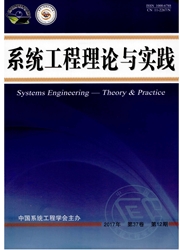

 中文摘要:
中文摘要:
近年来,组织从偶发事件中学习已成为组织学习研究领域的一个热点议题,但是现有研究较多关注当前发生的单次偶发事件,忽视了当前偶发事件与曾经发生的相关偶发事件之间的内在联系,而这些相关偶发事件的叠加能够强化组织所面临的问题情境,通过影响注意力质量来改变组织从偶发事件中学习的成效.因此,本研究利用20年间美国民用航空产业所经历的安全事故数据,从稳定性和发散性两个方面检验了问题情境中组织注意力质量与组织从偶发事件中学习成效之间的关系.注意力稳定性的作用体现在:偶发事件之前重复发生的次数越多、相关偶发事件的时间间隔越大,则组织从偶发事件中学习成效越好;注意力发散性的作用体现在:一定时期内组织所在行业全部偶发事件原因的发散程度与组织从偶发事件中学习成效呈现U型关系,而本组织全部偶发事件原因的发散程度与组织从偶发事件中学习成效呈现倒u型关系.
 英文摘要:
英文摘要:
Organizational learning from rare events has been a new branch in the field of organizational learning in recent years. However, organizations have paid most of their attention to the single rare event at present and neglected the internal associations of present event with relevant events happened previously. In fact, the superposition of relevant rare events can strengthen the problems contexts so that organizations can enhance the effectiveness of organizational learning from rare events through improving the quality of organization attention. Therefore, this study tested the relationships between the quality of organization attention in the specific problems context and the effectiveness of organizational learning from rare events based on the data about the accidents of American airline companies in a period of 20 years from the perspectives of stability and vividness. Specifically, the influence of attention stability on the effectiveness of organizational learning can be indicated by the results that the higher the frequency of relevant rare events and the greater the intervals between previous relevant rare events and present rare event, thehigher the effectiveness of organizational learning would be. The influence of attention vividness on the effectiveness of organizational learning can be reflected by the U-shaped relationship between the vividness of the reasons behind all rare events occurring within industries and the effectiveness of organizational learning and the inversed U-shaped relationship between the vividness of the reasons behind all rare events occurring within organizations and the effectiveness of organizational learning.
 同期刊论文项目
同期刊论文项目
 同项目期刊论文
同项目期刊论文
 期刊信息
期刊信息
